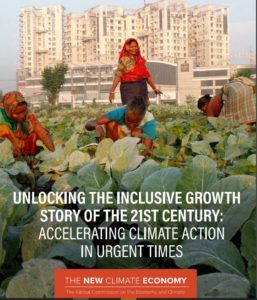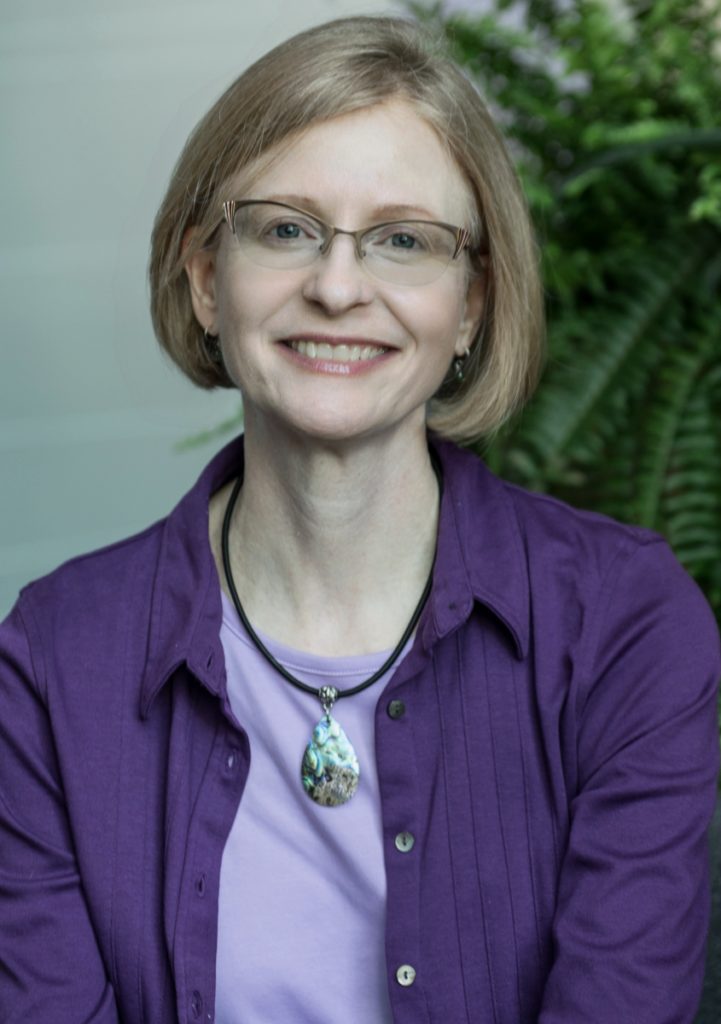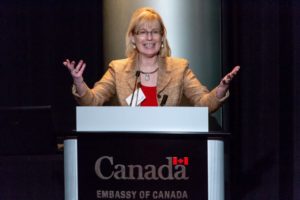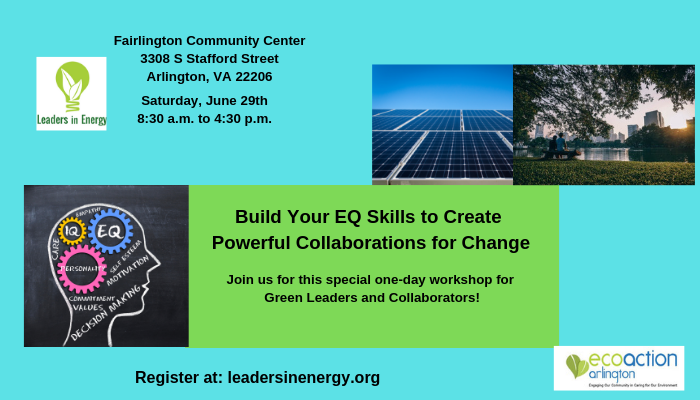 By MIRIAM ACZEL
By MIRIAM ACZEL
On June 29, Leaders in Energy will be hosting the ‘Green EQ* Skills Workshop: Build Your EQ* Skills to Create Powerful Collaborations for Change.’ Emotional intelligence, or EQ*, is a renowned management and leadership training approach that empowers us to identify our unique strengths and capacities, and important capabilities of others.

And the focus on emotional intelligence is growing: a recent survey of over than 2,600 hiring managers found that 71% stated that they valued emotional intelligence over IQ, and more than 75% said they were more likely to promote a highly emotionally intelligent worker.
Emotional intelligence is only going to become more important in the future, as the recent World Economic Forum’s report, Future of Jobs ranked emotional intelligence one of the 10 most crucial skills for 2020.
So why is EQ so important, particularly in the field of sustainability? We decided to take the opportunity to catch up with EQ Skills Instructor Beth Offenbacker and Leaders in Energy’s Executive Director Janine Finnell to take a closer look at this important skill, and what it means to them.
“In order to foster long-lasting, positive change, Sustainability & Green Business professionals must fully understand that emotions drive all decision-making behavior patterns. And to advocate successfully for long-term, positive behavior change, it’s first important to recognize both individual and team Emotional Intelligence (EQ) dynamics.” – K. Tisdale
Q&A with Dr. Beth Offenbacker, Principal, Waterford Inc.

Miriam Aczel:
How did you first become interested in emotional intelligence and helping others to develop it, and why do you think it is so important, particularly in sustainability? Is emotional intelligence a skill or quality? How can you improve it?
Beth Offenbacker:
Achieving real change is the process of using influence, impact, and leverage to achieve positive outcomes for the environment and sustainability. As Green Leaders, our life’s work is to continually develop our individual capacities — both the technical and the emotional or relational skills — to carry out productive change for our planet.
To do that, it sometimes requires us to step a little bit outside of our comfort zone. It’s what happens when we take on a new job or project, or begin working with a boss or partners we updon’t know very well yet. We get to know these fellow leaders, what makes them tick, focus on finding out how to avoid what sets them off — and most of all, what it takes to be successful in our work with them.
And it also requires that we realize — with honesty and self-compassion — when things aren’t working so well for us with colleagues and on a team. I’ve learned this myself as a leader and manager — and my own difficulties from time to time brought me to Six Seconds. I did not want to keep experiencing Groundhog Day on projects I was directing!
MA:
What can workshop participants expect to learn?
BO:
At a bottom line, the Green EQ workshop defines and specifies how each participant prefers to collaborate with others with a specialized, 50+ page report. We also examine that report in more detail and what it means for each participant. Second, the workshop gives participants a roadmap for improving the effectiveness of that collaboration, applied to a real world situation or project they’re working on.
MA:
What do you enjoy most about running EQ* training workshops?
BO:
Seeing and hearing about the insights that people gain from the experience. Every person I’ve worked with has described how practical and beneficial the workshop is — plus participants make great connections with fellow Green Leaders.
MA:
How do you learn to demonstrate something that’s intangible—emotional intelligence—in a job interview or similar situation
BO:
The juice is in finding out what drives and excites you, and what drives and excites the other person. How can you build on what you bring, and what they bring, to establish a foundation for working together? A job interview, a friendship, a project team all draw on our natural curiosity and desire to connect in a meaningful way for positive outcomes. The trick is in not letting our ego get out in front of the dialogue, but to continually build on that dialogue.
MA:
How can a naturally shy person make sure to show emotion rather than hide it–any advice?
BO:
This is the beauty of the Choice work that’s a core element of Green EQ. It’s having the “emotional literacy,” as we call it, to know what our emotions are present for us and to call on them in context to support the outcome we want. And of course, there’s also a “moderation” element — for example, to use an extreme, you would not physically dance around the room in an interview with a potential employer to show your excitement! Likewise, a shy person must find ways to express their passion for preventing ocean pollution (or whatever the topic might be) in a way that matches the tone of the conversation for the discussion that they’re participating in.
MA:
How can enhanced emotional intelligence skills benefit us beyond the job search or professional lives to our personal lives?
BO:
I did not start this work in the EQ field to benefit my marriage or the kids or my family, but I use what I’ve learned all the time in those relationships. Most of all, it’s taught me the value that “No one gets to be wrong for being who they are” — including me. When I stop judging others and myself, it changes the dynamic and some really wonderful things can start to happen.
Q&A with Janine Finnell, Executive Director, Leaders in Energy

Miriam Aczel:
How did you first learn about emotional intelligence and why do you think it is such an important skill, particularly in sustainability?
Janine Finnell:
I became aware of the concept of emotional intelligence (EQ) as a result of reading the 1995 book by the same title published by author and science journalist, Daniel Goleman. Emotional intelligence refers to various abilities in terms of individuals to recognize their own emotions and those of others to better adapt to environments or achieve one’s goal(s).
Goleman applied the concept to business with his 1998 Harvard Business Review titled “What Makes a Leader?” His research at nearly 200 large, global companies identified 5 components of emotional intelligence that he believed distinguished truly effective leaders: self-awareness, self-regulation, motivation, empathy, and social skill.
I think that becoming more aware of emotional intelligence can help to empower us and allow us to step up to take responsibility, to make the world a better and greener place for humanity, and other living beings. In our homes, in our neighborhoods and communities, in our workplaces, cities, states, and countries, we need leaders on every front and at every level…from solo change leaders… to leaders of others.
MA:
How can improving emotional intelligence help members of an organization like Leaders in Energy?
JF:
Our organization is dedicated to advancing clean energy and sustainable solutions. We connect those who are striving to make our world a greener, more sustainable one in the energy, environmental, and sustainability fields in order to share success stories and best practices on topics including expanding low carbon energy systems, growing a circular economy, building smart, green communities, and protecting natural resources. Our members range from government, industry, entrepreneurs, academia, investors, and citizens interested in making an impact.
Emotional intelligence skills can help one to achieve more consistently productive results, whether one is a formal leader of others or a leader-instigator in one’s own domain and cause. In a number of his videos available on YouTube, Goleman talks about how the art of leadership is getting work done through other people and a big part of emotional intelligence is how we communicate, persuade, inspire and motivate others.
Emotional intelligence can also help to align your values and what you desire to accomplish in terms of your dreams and what you want to get out of life. EQ traits and skills can be enhanced to improve one’s skills in certain areas like listening and improving one’s interpersonal skills as well as one’s focus. EQ also provides productive strategies and approaches to employ with others to enhance collaboration for more positive and successful outcomes.
MA:
Tell us about some of the opportunities Leaders in Energy provides for jobseekers and those looking to improve their skills.
JF:
We will be conducting our 6th Annual Green Jobs Forum in August 2019. Our past forums have brought together economic development officials to talk about green jobs initiatives in the region along with green employers and educators. The forums have also featured panels of those who had landed green jobs to allow them to provide inspiration and tips to others.
We have trained over 100 people in our Green Career workshops and Green Career Momentum classes. We have also helped businesses to display their sustainable products at our Showcases allowing them to meet with other businesses, consumers, and members of our community to help expand the green economy. If you want to have a green economy, people need to be able to make money from it. We are building a community where people can get support from others looking for jobs or seeking to collaborate on initiatives.
MA:
Any personal experiences or challenges you’d like to share [related to emotional intelligence and relating to others] you’d like to share?
JF:
I think that emotional intelligence can help one to become more introspective about what is important to oneself and one’s larger goals and values. I was also struck by Goleman’s identification of empathy as being a key characteristic of EQ. In my case, I have been increasingly concerned about the loss of biological diversity and this led to my work to make Arlington County a community wildlife habitat (through the National Wildlife Federation) and to help encourage and educate people on the importance of sustainable landscapes, particularly in the urban environment.
Increasingly, my concern is focused on the need to totally transform our economy and society to address the need to move to a low-carbon and more sustainable ways of living. I think that this can also harness great opportunities for new economic development and job creation along the lines of a report developed by The Global Commission on the Economy and Climate showing the potential for a $26 Trillion economy by 2030 which highlights opportunities in five key economic systems – energy, cities, food and land use, water, and industry. It demonstrates that ambitious action across these systems could deliver net economic gains compared with business-as-usual.
I think emotional intelligence can help one to keep an open mind and to be open to new and creative possibilities. At Leaders in Energy, we are working to move our economy and world to a more sustainable energy path. In doing so, we need to keep a range of technologies, policies, and social innovation paths open to accomplish this.
MA:
What other communication/networking activities can help LE members better connect with others?
JF:
In terms of helping to accelerate knowledge on best practices and success stories and connecting with others to help make a collective difference, we help people to connect with others in a variety of ways as follows:
1) You can join the Circular Economy Google Group at https://groups.google.com/group/circular-economy-dmv or email Gaby Seltzer at gabseltzer@gmail.com
2) You can see more about our monthly Circular Economy Working Group Meeting on our website page at: https://leadersinenergy.org/working-group-meeting-circular-economy/
3) Throughout the year we have workshops on green careers and leadership as well as educational and thought leadership events on clean energy finance, green business marketplace, and green jobs. And we have our Four Generations of Leadership event which recognizes leaders in all current generations in the workplace. These are listed on our website. You can see a recap of past events in our Event Archives.
4) Join our LinkedIn group. You can see the URL below and/or join via the social media icon on our website at leadersinenergy.org
5) You may also wish to subscribe to our newsletter to learn more about our events and related activities in the DMV region.
6) If you would like to write a blog on projects you are working on or researching, etc. feel free to reach out to our Director of Communications, Miriam Aczel at maczel@leadersinenergy.org.
Don’t miss out on this exciting and valuable workshop!
As one of last years’ EQ workshop attendees said, “at the 2018 Leaders in Energy EQ Workshop, those dynamics are exactly what I learned more about: How to better interact with different leadership styles and work preferences, how to dial up or dial back personal EQ traits that might be hindering productivity, and how to apply simple strategies to resolve conflict. The workshop provided priceless insight for all Green Leaders – and I highly recommend it!” – K. Tisdale
More information and workshop registration here.
About the instructor:
Beth Offenbacker is a certified emotional intelligence trainer and assessment expert with Six Seconds, the global nonprofit that specializes in emotional intelligence training. Dr. Offenbacker has taught dozens of industry professionals the leadership and management skills necessary for achieving successful outcomes. Her portfolio includes public, private, and nonprofit sector experience, including serving in senior leadership roles. Extensive experience designing and leading engagement processes for environmental projects (watersheds, stormwater, sewer, and circular economy). She is a Tree Steward with Tree Stewards of Arlington and Alexandria, where she currently serves as Interim President, and she is the Director of Training and Development for Leaders in Energy. Her doctorate is from Virginia Tech’s Center for Public Administration and Policy.
Further reading on emotional intelligence and environmental sustainability:
https://learnedon.com/2011/12/sustainability-2012-eq/
https://climatecommunication.yale.edu/visualizations-data/six-americas/
https://www.6seconds.org/2012/02/14/emotional-intelligence-sustainable-business/
https://www.6seconds.org/2013/04/22/climate-change-emotional-intelligence/
https://www.thebalancecareers.com/interview-questions-about-your-emotional-intelligence-2059962
Miriam Aczel is a President’s Scholar PhD Candidate at Imperial College London’s Centre for Environmental Policy. Her research is on international energy science and policy, with a focus on mitigation of environmental and health impacts of shale gas, as well as citizen science and public participation mechanisms. She is also co-founder and co-director of the Amir D. Aczel Foundation for Research and Education in Science and Mathematics, a nonprofit supporting educational programs in Cambodia and beyond.
Miriam is Director of Communications and blog editor for Leaders in Energy.



Leave a Reply